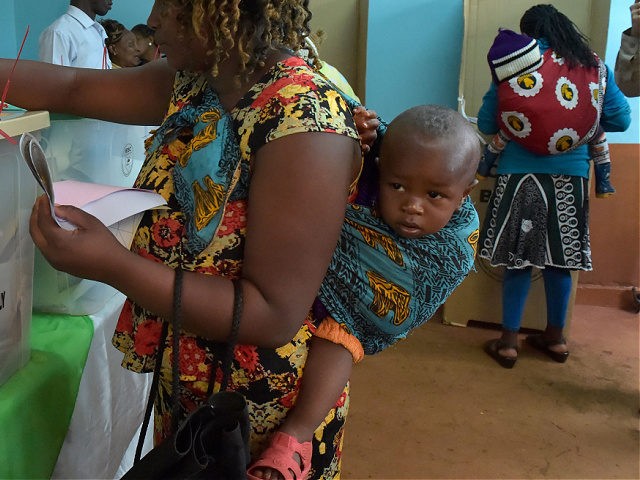Kenya’s fertility rate declined over the past decade, particularly in urban areas of the country, Kenya’s the Star newspaper reported on Friday citing newly released data from the Kenyan government.
“[T]he total fertility rate at the national level declined from 4.8 births in 2009 to 3.4 births in 2019,” the newspaper reported on May 6 citing data from a 2022 economic survey released by Kenya’s National Bureau of Statistics on May 5.
“Mandera County leads with the highest fertility rate of 8.0 per cent in Kenya while Nairobi [county] has the lowest rate of fertility which stands at 2.5 per cent,” according to the analysis.
“This means a woman in Mandera is likely to give birth to eight children while in Nairobi a woman will only give birth to two or three children,” the Star noted.
Mandera is largely rural, as its main economic activity is “pastoralism” according to the county’s official government website.
“The main economic activity in Mandera County is pastoralism, contributing approximately to 72 percent of the total household income. Cross-border trade, artisanal mining, beekeeping and irrigation-aided agriculture are the other viable ventures,” the website states.
Nairobi county, by contrast, is considered urban as it is Kenya’s most populous county. Kenya’s national capital, also named Nairobi, is located within Nairobi county and is Kenya’s most populous city. The greater Nairobi metropolitan area generates the majority of Kenya’s wealth. The region is one of the largest urban centers in East and Central Africa and is home to about 9.4 million inhabitants.
Nairobi serves as Kenya’s industrial, educational, and cultural center. The metropolis is home to a handful of universities and colleges and boasts higher levels of education and employment than the rest of Kenya. Nairobi’s higher rates of income and education are directly tied to the low fertility rate of the city and its surrounding county, according to Kenya’s government.

File/A picture taken in Nairobi on May 9, 2013 shows a billboard promoting the use of condoms by U.S.-based Catholic group Catholics for choice. (TONY KARUMBA/AFP via Getty Images)
“Fertility rates have remained relatively higher among women living in rural areas and among those with low levels of education,” the Star reported on May 6 citing the 2022 economic survey by Kenya’s National Bureau of Statistics.
“Women from poor backgrounds tend to record higher birth rates compared to their counterparts from wealthier families,” the newspaper observed.
“The [Kenyan] Health Ministry attributes the decline in fertility rates to the considerable use of family planning among married women, which is at 58 per cent and 65 per cent among sexually active unmarried women, as of 2020,” according to the report.
The revelation suggests that women who live in Kenyan urban centers like Nairobi, where “family planning” and abortion centers are more prevalent, are more likely to either be on birth control or undergo abortions after becoming pregnant than rural women.
A United Nations (U.N.)-funded organization known as Family Planning 2030 (FP2030) actively promotes contraceptive use in less developed nations, including Kenya. The group also provides abortion-related services for women in such countries, or what it describes as “postabortion family planning.”
“Kenya has … recently exceeded its 2020 target of 58% modern contraceptive use by married women,” according to a profile of the country on FP2030’s website.
The profile continues:
Rather than adjust this target, the government has decided to focus its efforts to expand equitable access to quality care at the county level, where ideal family size ranges from nine children in the northeast to three children in the Nairobi region. Notably the number of counties that have family planning budget allocations has increased; however, they remain a small share of the health budget. Advocates are working to increase domestic financing and reduce donor dependency.
FP2030 is an initiative of the U.N.’s “2030 Agenda for Sustainable Development” that works to expand access to birth control in poorer nations by 2030 and ensure that “demand for family planning is satisfied using effective contraceptive methods … essential for achieving universal access to reproductive health-care services.”
Major donors to FP2030 in addition to the U.N. Population Fund are the U.S. government and the Bill & Melinda Gates Foundation.

COMMENTS
Please let us know if you're having issues with commenting.